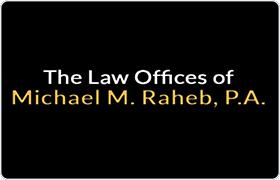 Sarasota County, FL White Collar Crime Lawyers
Sarasota County, FL White Collar Crime Lawyers
Sponsored Law Firm
-
 x
x

Click For More Info:
-
Law Offices of Michael M. Raheb P.A.
2423 First St Fort Myers, FL 33901» view mapCriminal Defense Law Legal Problem? Call Us 24/7
At the Law Office of Michael M. Raheb, we strive to ensure each of our clients receives the individual attention and representation necessary to obtain an optimal outcome.
800-890-8981
Not enough matches for Sarasota White Collar Crime lawyer.
Below are all Sarasota lawyers.
Lawyers
<
31-40 of 66 matches
Wrongful Death, Personal Injury, Car Accident, Accident & Injury
Divorce & Family Law, Child Support, Child Custody, Paternity
Business Organization, Dispute Resolution, Real Estate, Construction, Corporate
Corporate Tax, Gift Taxation, Estate Planning, Business Organization, Immigration
Dissolution, Elder Law, Child Support, Commercial Real Estate, Divorce
Car Accident, Corporate, Litigation, Real Estate, Construction
Dissolution, Contract, Child Support, Alimony & Spousal Support, Divorce




 Michael M. Raheb Fort Myers, FL
Michael M. Raheb Fort Myers, FL Practice AreasExpertise
Practice AreasExpertise